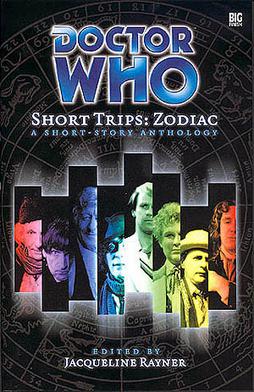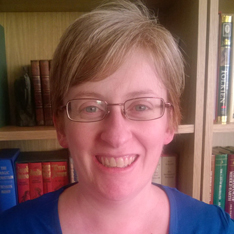Related Research Articles

Dr. Leonard H. McCoy, known as "Bones", is a character in the American science-fiction franchise Star Trek. McCoy was played by actor DeForest Kelley in the original Star Trek series from 1966 to 1969, and he also appears in the animated Star Trek series, in six Star Trek films, in the pilot episode of Star Trek: The Next Generation, and in numerous books, comics, and video games. A decade after Kelley's death, Karl Urban assumed the role of McCoy in the Star Trek reboot film in 2009.
A future history is a fictional history of the future used by authors of science fiction and other speculative fiction to construct a common background for stories. Sometimes the author publishes a timeline of events in the history, while other times the reader can reconstruct the order of the stories from information provided. The term can also be used to describe the subgenre of science fiction that uses this framework.
Tom Godwin was an American science fiction author active throughout the 1950s into the 1970s. In his career, Godwin published three novels and around thirty short stories. He is best known for his short story, "The Cold Equations". Published in 1954, the short story was Godwin’s fourth work to be published and was one whose controversial dark ending helped redefine the genre.

The Magazine of Fantasy & Science Fiction is a U.S. fantasy and science fiction magazine, first published in 1949 by Mystery House, a subsidiary of Lawrence Spivak's Mercury Press. Editors Anthony Boucher and J. Francis McComas had approached Spivak in the mid-1940s about creating a fantasy companion to Spivak's existing mystery title, Ellery Queen's Mystery Magazine. The first issue was titled The Magazine of Fantasy, but the decision was quickly made to include science fiction as well as fantasy, and the title was changed correspondingly with the second issue. F&SF was quite different in presentation from the existing science fiction magazines of the day, most of which were in pulp format: it had no interior illustrations, no letter column, and text in a single-column format, which in the opinion of science fiction historian Mike Ashley "set F&SF apart, giving it the air and authority of a superior magazine".
Peter Darvill-Evans is an English writer and editor.
Kate Orman is an Australian author, best known for her books connected to the British science-fiction television series Doctor Who.
Nigel Robinson is an English author, known for such works as the First Contact series. Nigel was born in Preston, Lancashire and attended St Thomas More school. Robinson's first published book was The Tolkien Quiz Book in 1981, co-written with Linda Wilson. This was followed by a series of three Doctor Who quiz books and a crossword book between 1981 and 1985. In the late 1980s he was the editor of Target Books' range of Doctor Who tie-ins and novelisations, also contributing to the range as a writer.
Stelios Grant Pavlou is a British screenwriter and speculative fiction novelist. He is known for writing the novel Decipher and the screenplay for the film The 51st State.

A science fiction magazine is a publication that offers primarily science fiction, either in a hard-copy periodical format or on the Internet. Science fiction magazines traditionally featured speculative fiction in short story, novelette, novella or novel form, a format that continues into the present day. Many also contain editorials, book reviews or articles, and some also include stories in the fantasy and horror genres.
Ian Briggs is a British television writer, author and manager, whose work includes scripts for the BBC drama series Doctor Who and Casualty.

The Big FinishShort Trips are a collection of short story anthologies published by Big Finish Productions based on the BBC Television series Doctor Who, beginning with the collection Short Trips: Zodiac in December 2002 and ending with the loss of their license in 2009. The Short Trips name was inherited from similar collections published by the BBC, who decided in March 2000 that it was no longer financially viable to produce collections of short stories. Big Finish Productions negotiated a licence to continue producing these collections, publishing them in smaller runs and in hardback, thus allowing for a higher cover price and increased profit margins than on the BBC collections.
Jonathan Blum is an American writer most known for his work for various Doctor Who spin-offs, usually with his wife Kate Orman although he has also been published on his own.

Steven Savile is a British fantasy, horror and thriller writer and editor living in Sweden. His published work includes novels and numerous short stories in magazines and anthologies.
Simon Guerrier is a British science fiction author and dramatist, closely associated with the fictional universe of Doctor Who and its spinoffs. Although he has written three Doctor Who novels, for the BBC Books range, his work has mostly been for Big Finish Productions' audio drama and book ranges. Guerrier has also written tie-in books for the Being Human and Primeval television series and co-authored a reference book for the Buffy the Vampire Slayer television series.

Wanderers Of Time is a collection of five science fiction stories by John Wyndham, published in Coronet Books in 1973. The stories were early works, originally published in magazines in the 1930s and written under the name of John Beynon.
Scott Keegan Andrews is an English author of science fiction. His School's Out trilogy was published by Abaddon, and his Timebomb trilogy was published by Hodder and Stoughton. His first novel was filmed as School's Out Forever.

Super-Science Fiction was an American digest science fiction magazine published from 1956 to 1959, edited by W. W. Scott and published by Feature Publications. Robert Silverberg and Harlan Ellison, who were at the start of their careers at the time, were already selling crime stories to Scott for his other magazines, Trapped and Guilty, and quickly started bringing Scott science fiction stories as well. Scott bought scores of stories from the pair during the magazine's short life; much of the remainder was sent in by literary agents, and generally comprised material rejected by other magazines first, though Scott did obtain two stories from Isaac Asimov.
The year 1925 was marked, in science fiction, by the following events.

Una McCormack is a British-Irish academic, scriptwriter and novelist. She is the author of The Baba Yaga (2015) and The Star of the Sea (2016), two books in the Weird Space series from UK science fiction publisher Abaddon Books.

Space travel, or space flight is a classic science-fiction theme that has captivated the public and is almost archetypal for science fiction. Space travel, interplanetary or interstellar, is usually performed in space ships, and spacecraft propulsion in various works ranges from the scientifically plausible to the totally fictitious.
References
- ↑ "Every Single Doctor Who Story, Ranked from Best to Worst". Gizmodo. 17 September 2015. Retrieved 12 March 2024.
- ↑ "Authors : McCoy, Glen : SFE : Science Fiction Encyclopedia".
- ↑ "Every Single Doctor Who Story, Ranked from Best to Worst". 17 September 2015.
- ↑ "Authors : McCoy, Glen : SFE : Science Fiction Encyclopedia".
- ↑ "Publication: Doctor Who Short Trips: The Centenarian". isfdb.org.
- ↑ "Glen McCoy – Roger Carey Associates".